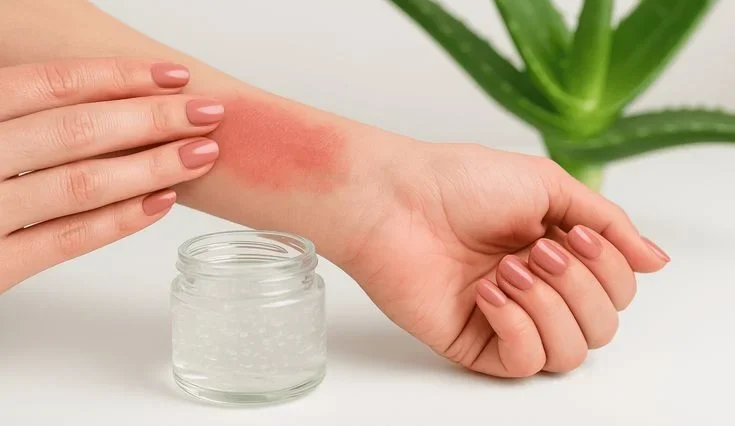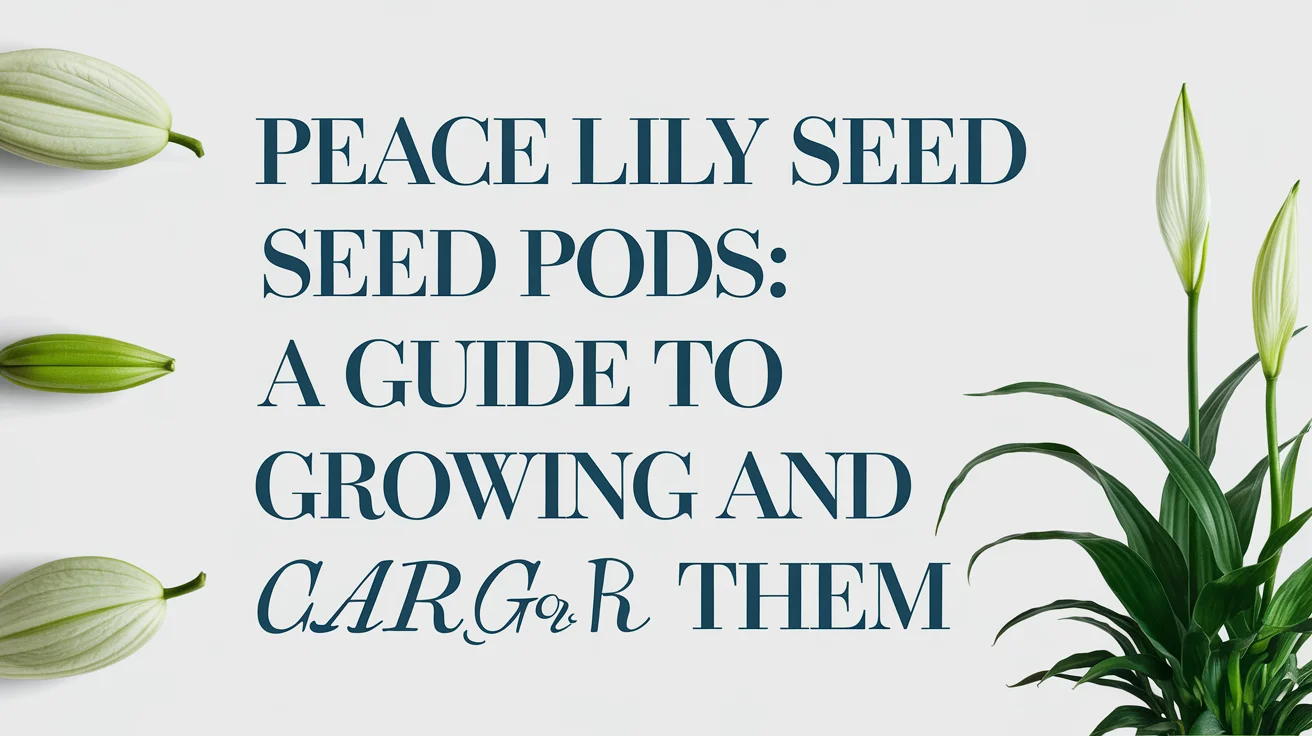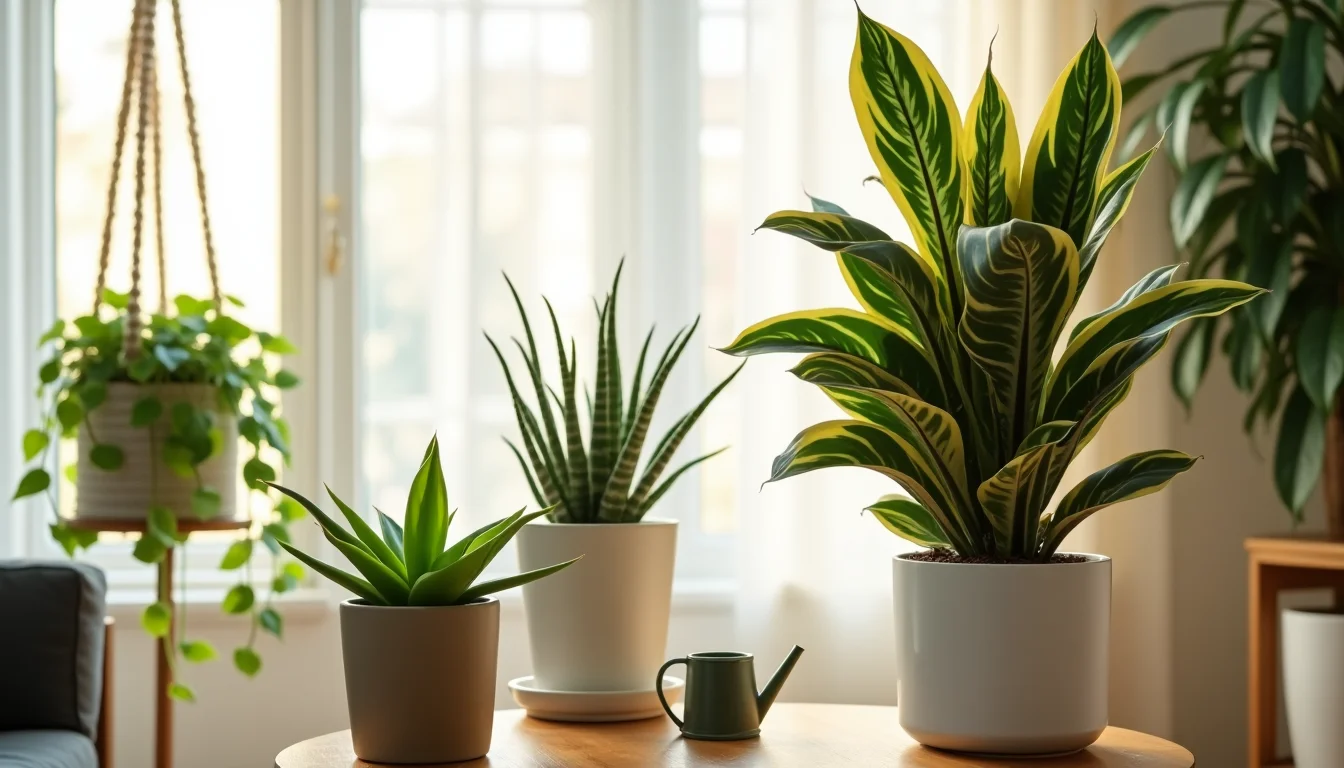Aloe vera is widely praised for its soothing gel and natural healing properties. However, for some people, direct contact or use may lead to allergy to aloe vera plant. While the plant is generally safe, its latex and gel can trigger skin irritation, rashes, or even more severe allergic reactions.
In this detailed guide, we will explore the symptoms, causes, remedies, and prevention of aloe vera allergy so you can use this popular plant safely.
What Is an Allergy to Aloe Vera Plant?
An allergy occurs when the body’s immune system overreacts to a substance it perceives as harmful. In the case of aloe vera, this reaction can be triggered by two main parts of the plant:
- Aloe gel: the clear inner substance, often used for skincare.
- Aloe latex: the yellow sap found just beneath the leaf’s skin.
While aloe gel is usually safe, latex is known to cause irritation, especially when applied directly to the skin or ingested.
Symptoms of Allergy to Aloe Vera Plant
Recognizing the symptoms is essential to avoid further irritation. Common signs of allergy to aloe vera plant include:
- Redness or skin rash
- Itching and burning sensation
- Swelling at the site of application
- Cracked or peeling skin
- Hives or small bumps
In rare but severe cases, symptoms may also include:
- Difficulty breathing
- Dizziness or fainting
- Swelling of lips, eyes, or throat
If you notice severe reactions, seek medical help immediately.
Causes of Aloe Vera Allergy

Although aloe vera is widely considered safe and natural, not everyone tolerates it, and some individuals may develop an allergy to aloe vera plant. One of the most common causes is sensitivity to aloe latex, which contains compounds that can irritate the skin or digestive system. In addition, overuse of aloe gel especially when applied in thick layers or too frequently may clog pores and result in irritation.
People with pre-existing skin conditions such as eczema, psoriasis, or very sensitive skin are also at a higher risk of developing allergic reactions. Furthermore, the internal use of aloe latex can trigger abdominal cramps, diarrhea, and other allergic responses, making it essential to use aloe products carefully and in moderation.
Risk Factors for Aloe Vera Allergy
Certain individuals have a higher chance of developing allergy to aloe vera plant. Risk factors include:
- History of plant-based allergies (e.g., garlic, onions, tulips).
- Sensitive or damaged skin.
- Frequent topical use of aloe vera products.
- Ingesting unprocessed aloe juice containing latex.
How to Diagnose Allergy to Aloe Vera Plant
A diagnosis usually involves a patch test. Apply a small amount of aloe vera gel to your inner arm and wait 24 hours.
If redness, itching, or rash develops, you likely have an allergy. Dermatologists may also perform allergy tests to confirm the sensitivity.
Home Remedies for Aloe Vera Allergy
If you experience mild symptoms of an allergy to aloe vera plant, there are several effective home remedies that can bring relief and support faster healing. Since allergic reactions often appear as redness, itching, or skin irritation, turning to natural solutions is a safer option before considering medical treatments.
By applying simple remedies such as cold compresses, oatmeal paste, or coconut oil, you can reduce discomfort and restore skin balance. Moreover, for individuals who are highly sensitive to aloe, switching to alternatives like chamomile or calendula ensures long-term skin safety without the risk of triggering further allergic responses.
These remedies not only calm irritation but also improve overall skin health, making them a practical choice for everyday care.
Cold Compress for Quick Relief
Applying a cold compress is one of the fastest ways to relieve itching, redness, and swelling caused by aloe vera allergy. The cold temperature helps constrict blood vessels, which in turn reduces inflammation and provides an instant calming effect on the skin.
Oatmeal Paste to Soothe Irritation
Another powerful remedy is oatmeal paste. Known for its anti-inflammatory properties, oatmeal helps soothe irritated skin naturally. By creating a simple paste with water and applying it directly to the affected area, you can reduce itching and promote healing within a few minutes.
Coconut Oil for Moisturizing and Healing
Coconut oil works as a natural moisturizer and is especially beneficial if the allergy has caused dry, cracked, or inflamed skin. Its antibacterial and soothing qualities speed up recovery while keeping the skin hydrated, reducing the risk of further irritation.
Aloe Substitutes for Sensitive Skin
For people sensitive to aloe vera, it is best to switch to safer alternatives such as chamomile or calendula. Both are well-known for their skin-calming properties and can effectively reduce redness, itching, and discomfort without triggering allergic reactions.
Medical Treatments for Aloe Vera Allergy
When home remedies are not enough to manage an allergy to aloe vera plant, medical treatments may be necessary for effective relief. In many cases, doctors recommend antihistamines, which help reduce itching and swelling quickly.
For patients with more noticeable irritation, topical corticosteroids are often prescribed to calm inflammation and redness. In severe situations, especially when skin conditions like eczema flare up, prescription creams may be required to control the reaction.
However, it is always important to consult a dermatologist if symptoms persist or worsen, as professional guidance ensures safe and proper treatment. Similarly, just as choosing the right care is essential for skin health, selecting the proper growing medium is crucial for plants like aloe vera—see our guide on Potting Mix for Aloe Vera to ensure optimal growth and vitality.
How to Prevent Allergy to Aloe Vera Plant

Prevention is better than cure. To avoid aloe vera allergy:
- Perform a patch test before applying aloe products.
- Use processed aloe vera gel, which usually has the latex removed.
- Avoid applying aloe on broken or sensitive skin.
- Consult your doctor before consuming aloe juice.
Alternatives to Aloe Vera for Sensitive Skin
If you have an allergy to aloe vera, don’t worry there are safe alternatives:
- Chamomile gel: Known for calming sensitive skin.
- Calendula cream: Reduces irritation and redness.
- Cucumber gel: Refreshes and hydrates naturally.
- Shea butter: Nourishes dry or inflamed skin.
For scientific insights, you can check resources from the American Academy of Dermatology, which provides guidance on managing plant-based allergies.
FAQs
1. Can aloe vera allergy develop suddenly?
Yes, even if you have used aloe before without issues, sensitivity can develop over time.
2. Is aloe vera safe for people with eczema?
Not always. While it may soothe some, it can trigger allergic reactions in others with sensitive skin.
3. Can I drink aloe vera juice if I am allergic to the plant?
No, if you are allergic, consuming aloe products may worsen the reaction and affect your digestive system.
4. How long do aloe vera allergy symptoms last?
Mild reactions often clear in a few days with treatment, but severe cases may last longer.
5. Are store-bought aloe vera gels safer than raw aloe?
Yes, commercial gels are usually filtered and processed to remove most latex, making them safer for sensitive skin.
Conclusion
Although aloe vera is a natural healer, some individuals may experience an allergy to aloe vera plant. Recognizing symptoms early, avoiding triggers, and using proper remedies can help manage the condition effectively.
By performing patch tests, choosing safe alternatives, and consulting a doctor when needed, you can prevent allergic reactions while still enjoying natural skincare solutions. Additionally, if you grow aloe at home, following proper care guidelines, such as those in Growing Aloe Vera Indoors, ensures healthy plants while minimizing the risk of irritation.
If you suspect you may have aloe sensitivity, always prioritize safety and consider switching to gentler plant-based remedies.


















